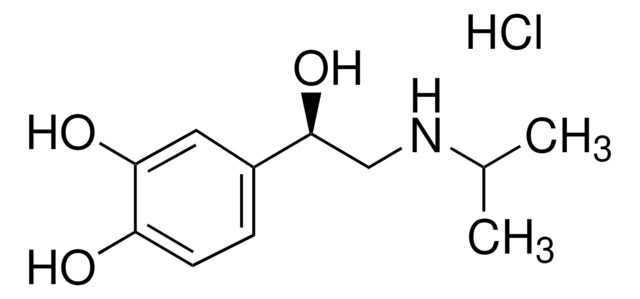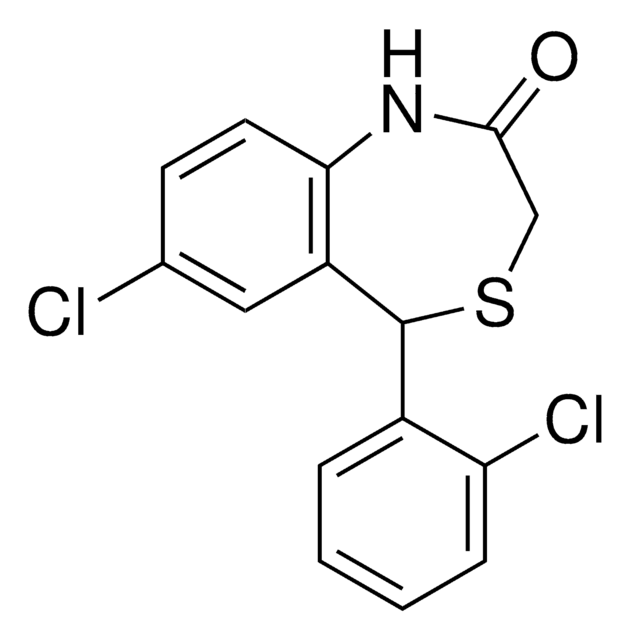M0199
Mdivi-1
≥98% (HPLC), powder, mitochondrial division DRP inhibitor
Sinónimos:
3-(2,4-Dichloro-5-methoxyphenyl)-2,3-dihydro-2-thioxo-4(1H)-quinazolinone, 3-(2,4-Dichloro-5-methoxyphenyl)-2-sulfanyl-4(3H)-quinazolinone
About This Item
Productos recomendados
product name
Mdivi-1, ≥98% (HPLC), powder
assay
≥98% (HPLC)
form
powder
color
white to beige
solubility
DMSO: >20 mg/mL
shipped in
wet ice
storage temp.
−20°C
SMILES string
COc1cc(N2C(S)=Nc3ccccc3C2=O)c(Cl)cc1Cl
InChI
1S/C15H10Cl2N2O2S/c1-21-13-7-12(9(16)6-10(13)17)19-14(20)8-4-2-3-5-11(8)18-15(19)22/h2-7H,1H3,(H,18,22)
InChI key
NZJKEVWTYMOYOR-UHFFFAOYSA-N
General description
Application
- in embryonic thoracic aorta A7r5 cells to inhibit cell migration and proliferation
- in mitochondrial network reshaping and reactive oxygen species (ROS) production studies in oligodendrocyte precursor cells (OPCs)
- to induce mitochondrial damage in lung fibroblasts
Biochem/physiol Actions
Features and Benefits
Storage Class
11 - Combustible Solids
wgk_germany
WGK 3
flash_point_f
Not applicable
flash_point_c
Not applicable
Certificados de análisis (COA)
Busque Certificados de análisis (COA) introduciendo el número de lote del producto. Los números de lote se encuentran en la etiqueta del producto después de las palabras «Lot» o «Batch»
¿Ya tiene este producto?
Encuentre la documentación para los productos que ha comprado recientemente en la Biblioteca de documentos.
Los clientes también vieron
Artículos
Apoptosis regulation involves multiple pathways and molecules for cellular homeostasis.
Cell cycle phases (G1, S, G2, M) regulate cell growth, DNA replication, and division in proliferating cells.
Nuestro equipo de científicos tiene experiencia en todas las áreas de investigación: Ciencias de la vida, Ciencia de los materiales, Síntesis química, Cromatografía, Analítica y muchas otras.
Póngase en contacto con el Servicio técnico












